New Jersey Facts For The Adventurer

You’re seeking a coming-of- age story—you, your best friends, and the open road. Or, you’re
middle-aged, trying to escape suburbia and relive the glory days. But whether you’re seeking to
live out Motorcycle Diaries or the equally acclaimed Wild Hogs, what better place in the entire
world to do it than the state of New Jersey? If you’re exhausted with complacency and seeking
adventure, then buckle up while we give you New Jersey facts to help you live out your story.
And try not to become a violent revolutionary in 1950s Cuba.
[framed_box]
Quality Sleep Wherever You Go
Heed not weary travelers, your aching joints will finally find a cushiony mattress to catch some
sleep on during your journey. New Jersey may be one of the smaller states in the country, but
its stunning landscape is peppered with more than 300 hotels, bed & breakfasts, and resorts,
rich with early American history; among them, Cape May—one of the country’s oldest vacation
resort destinations.
You may not have gotten into AP US History, but you can finally take the field trip you missed out on—without those pretentious nerds incessantly suggesting new NPR podcasts to you.
[/framed_box]
[framed_box]
Wineries
With nearly 50 wineries across the state, New Jersey is the perfect destination for you to be a
reliable, designated driver for your friends. Nothing’s cooler than being the responsible friend or
partner, drunk and high only on the ceaseless beauty of a life driving through the Garden State.
[/framed_box]
[framed_box]
Historic Locations
From the Revolutionary War reenactments at Monmouth Battlefield State Park, to the final
homes of Albert Einstein and Walt Whitman, to the point on the Delaware where George
Washington famously crossed in Christmas of 1776, the freedom of
driving in New Jersey is
part of the same freedom enjoyed, celebrated, and secured by the history of these landmarks.
It’s the freedom to turn off the few moments of remaining history on the History Channel or toss
out your textbooks—and absorb the American story firsthand.
[/framed_box]
[framed_box]
Gamblers Paradise
Something you should never gamble: your riskiness as a driver by not taking our
online defensive driving course. Something you can sometimes gamble: small, responsible portions of money that you can afford to lose. Atlantic City is home to 11 casinos, perfect for those looking for a chance to win it big, perhaps to buy our online defensive driving course for friends and
family!
[/framed_box]
[framed_box]
Just like the subject header suggests, you can’t not have fun at the Six Flags resort in Jackson,
New Jersey. If it were up to us, we’d make it against New Jersey state law to not have
fun at the Six Flags resort in Jackson, New Jersey. But there’s really no use, since everyone
has fun at the Six Flags resort in Jackson, New Jersey.
[/framed_box]
[framed_box]
State of Pickup Trucks
The pickup truck is the most popular car that is sold in the state of New Jersey. We can only
speculate why. Our best guesses:
● New Jersians carry a lot of things from place to place
● Driving a few feet above everyone is awesome
● It’s ingrained in friendly New Jersey culture to always be ready to help a friend move
● I mean pickup trucks are pretty sweet in general
[framed_box]
I-95 Rest Stops
There exist 12 rest stop locations on I-95. For those small-bladdered folk, large drink fanatics, or rest stop explorers, New Jersey has more than enough to offer you.
[/framed_box]
[framed_box]
National Parks
Within just about 9,000 square miles, the state of New Jersey contains 12 national parks, including a leg of the Appalachian trail, Ellis Island, and Paterson Great Falls. For those of us that love hiking, immigrants, and waterfalls—which is all of us, of course—we’re satisfied by just a fraction of what beauty and significance the National Park Service offers in New Jersey alone.
[/framed_box]
Is My License Suspended in GA? How to Fix?

When someone's license is suspended, it means that it's temporarily out of service. In other words, if you have a suspended license and decide to drive a vehicle anyway, you're breaking the law. And in Georgia, the penalty for driving on a suspended license is an extension of the suspension by six months.
There are many reasons as to why your license may be suspended. There are also some things that you can do to ensure that you're back legally operating a vehicle on said license, like completing a defensive driving course Georgia. This post will take a closer look at how to learn if your license is suspended and what to do about it:
[framed_box]
Checking Your License Status
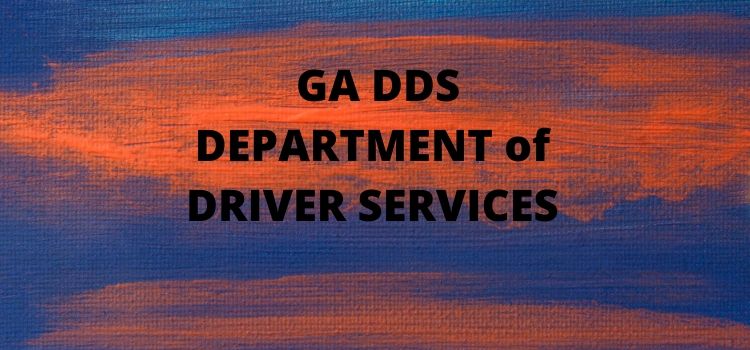
First things first, how do you know whether you have a suspended license? The good news is that this is fairly easy to find out - all you need to do is check your record. This can be done by either contacting the Georgia Department of Motor Vehicles by phone or by logging on to the
Georgia DDS website. When you access your driving record, you'll be able to view moving violations, points on your license and whether the license has been suspended or revoked. If you check your driving record and see that your license has indeed been suspended, the next step is to figure out why.
[/framed_box]
[framed_box]
Why Is My License Suspended?
Your license may have been suspended for many reasons, but the reasons typically fall into four main categories: major violations, excessive license points, driving without car insurance and non-driving related issues. Here's a brief rundown of each:
• Major violations: This includes the likes of vehicular homicide, committing a felony with a vehicle, fleeing police, a hit and run, a fraudulent license and improper registration, among others.
• Excessive license points: When you're cited by police, points are applied to your license. In Georgia, if you rack up 15 or more points within a 24-month period, your license will be suspended.
• Driving without Car Insurance: All Georgia drivers must have valid car insurance.
• Non-driving issues: Things like unpaid child support or court-related issues can prompt a judge to suspend a driver's license.
[/framed_box]
[framed_box]
How to Fix a Suspended License
The fix for a suspended license largely depends on the reason for why the license was suspended in the first place. In most cases, drivers are required to pay reinstatement fees, which vary based on the type of offense that was committed, how frequent the offense was committed and whether the fine was paid in person or via mail. For instance, a license suspended due to a DUI costs $200 to reinstate via mail and $200 to reinstate in person.
There are a few other considerations to keep in mind when it comes to reinstating a license. For instance, if it's been suspended because of excessive points, taking a defensive driving course in Georgia can help remedy this issue. Successful completion of such a course can trim up to seven points from your record. However, it's also worth noting that you're only permitted to reduce points by taking such a course once every five years. What's more is that your license will remain suspended for the duration of time it takes you to complete the course. Be sure the course is approved by the GA DDS, our
defensive driving course GA is for court-ordered or insurance discounts only.
Another thing you can do is request a hearing to appeal the suspension if you believe it may have been suspended illegally. The request for the hearing must be completed within 10 days of the suspension and fees may also apply for the hearing.
[/framed_box]
How to Get Points Off Your License in VA

In the state of Virginia, a point system is used to keep track of how well a licensed driver maintains his or her driving record. When points are added to a person's driving record, this means a positive incident has occurred, such as keeping a clean driving record for a period of 12 months. The lower the number of points a driver has, the closer he is to losing his driving privileges. The lower the number of points the driver has can also lead to higher insurance rates. This is why it is so important to have points added when possible. One of the best ways to keep points from being deducted is to take a
VA driver improvement course online.
[framed_box]
How the point system works in Virginia
Before we dive deep into understanding how to get points added to a driving record, you first need to understand how the point system works in Virginia. When a person first earns his driver's license, a clean slate of 0 points is given to him as well. For every year that he drives with no moving violations or suspensions, a point is added to his license.
The more points, the better, with a total of five points being the most he can earn. If, however, he obtains a moving violation or suspension, not only will he forfeit the ability to add a point to his license, but he will also incur a loss in points. The type of violation will determine how many points he loses.
[/framed_box]
[framed_box]
Example of losing points on your driving record
Let's say you have been driving in the state of Virginia with a valid Virginia driver's license for four years and you have had no violations or suspensions; this means you will have a point balance of +4. During your 5th year of driving, however, you get a speeding ticket for driving 7 mph over the speed limit; this has a point deduction rate of 3, so your new point balance will be +1. During your 6th year of driving, you get a ticket for tailgating, which has a point deduction rate of 4, so your new point balance is -1.
[/framed_box]
[framed_box]
How long does it take for demerit points to be removed?
When you obtain a traffic violation or suspension, the demerit points will remain on your driving record for two years; this two-year mark is from the date the offense was committed.
It's important to note that there is a difference between the date a person commits the offense and the date in which they were convicted.
Demerit points are removed two years from the date of the offense, whereas the conviction will remain on the person's record for a period of years starting from the time he or she was actually convicted. The exact length of time that the conviction will remain on the person's driving record depends on the specific offense. Some offenses stay on a person's record for three years; however, some are permanent.
[/framed_box]
[framed_box]
Getting points added to your license
Remember, it is a good thing to have points added to your license. You will receive a point each year that you drive safely and don't receive any violations or suspensions. It is, however, not good to have demerit points added to your driving record. Demerit points actually reduce the total number of points you have and can make it difficult to get back into a positive number of points. In some instances, you may be able to take a VA driver improvement course online to keep from having demerit points added to your record:
Court Referred
Sometimes a Virginia court will dismiss the demerit points associated with a specific violation received to keep points off your driving record.
VA DMV Ordered
At times, the DMV will require Virginia drivers to take the
Virginia Driver Improvement Course if:
• You were convicted of a traffic violation or safety belt/child restraint violation when you were age 18 or 19
• 12 demerit points have been accumulated within a 24-month period
• To restore driving privilege after being suspended for excessive demerit points
Voluntary to receive 5 safe driving points
You can take an approved Driver Improvement course once every 24 months to earn 5 safe driving points.
[/framed_box]
TX Defensive Driving Comedy
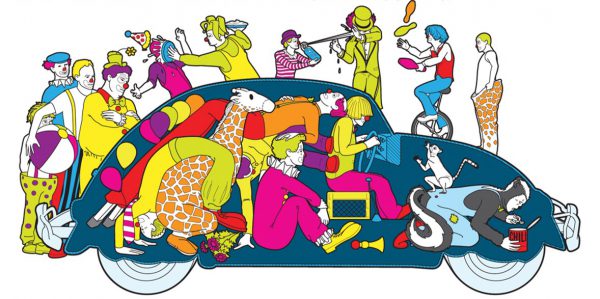
Everyone has a funny driving story. Some are unusual, some are silly – but no matter what type of driving story you have to tell, we’re sure that there’s some sort of entertainment value in it. And in the case that your driving story warranted a citation, there’s usually a
defensive driving course that can help reduce any fines, offset ticket points, potentially lead to lower insurance premiums and, above all, just give you the proper refresher on how to drive safely the next time you might be in a similar situation.
With that said, here’s a look at some of the funny driving stories we’ve heard in our defensive driving courses from students over the years:
[framed_box]
Speeding to the Hospital to Have a Baby
You can never prepare for the exact time a baby will arrive, which is why it’s important to have the hospital bag packed and waiting by the door to grab as you run out the door around the due date. But what happens when your wife goes into labor at home and you’re in such a rush to get to the hospital that you forget her? That’s what happened to one of our former students, as he was pulled over by the police for speeding. When he explained that he needed to get his wife to the hospital to have a baby, he expected the police officer to say, “Follow me,” and light up the squad car. But the officer gave a bewildered reaction and calmly proclaimed, “I think you may have forgotten something.”
In the end, mom made it to the hospital with time to spare and gave birth to a healthy baby boy.
[/framed_box]
[framed_box]
Um, That’s Not the Stick Shift
One of our students was taking their driving test in a manual transmission vehicle. The driving test instructor, per the usual, was sitting in the passenger’s seat. Things were going well until the student mistook the driving instructor’s thigh for the stick shift. Though a bit awkward at first, both the student and the instructor had a good laugh about it once they realized what had happened. The student wound up passing the test. Wink, wink.
[/framed_box]
[framed_box]
Traffic Jam Karaoke
Though traffic jams aren’t usually met with excitement and laughter, that wasn’t the case with a recent student of ours. She was caught in rush hour traffic, combined with a traffic accident that blocked two of the three lanes of highway she was driving on. Needless to say, traffic wasn’t going anywhere fast as all the vehicles had to go from three lanes down to just one. But instead of letting the traffic jam get to her, this student cranked up the radio, rolled down the windows and changed the channel until she found a song she knew. Before she knew it, she realized that other drivers around her had done the same thing, and were belting out the same song. If you can’t beat the traffic, you might as well join it… in full-fledged song.
[/framed_box]
[framed_box]
Ultimate Sledding
What do you get when you mix teenage hijinks with extreme sports? Ultimate sledding! One of our students told us a story about how he and his friends used to attach a sled and rope to his friend’s truck hitch and then they’d take turns sledding through neighborhoods after a nice snowfall. His fun came to an end one day when a resident phoned the police. They got off with nothing more than a warning, but were told that if they were caught again they wouldn’t be as fortunate. Oh well, albeit a bit dangerous, it sounds like a fun way to shovel the snow!
[/framed_box]
Best & Worst New Jersey Driving Laws
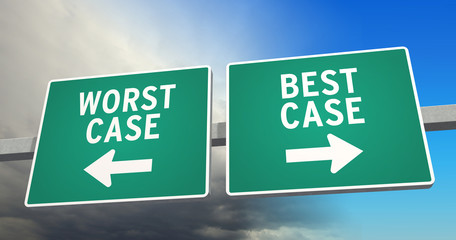
It doesn't matter what state you live in, there are bound to be certain laws that you adamantly agree with and others that you don't agree with. Driving laws are no different - some are good, and some are, based on various opinions, bad. If you live in the state of New Jersey, you might want to just brush up on all of them because numerous studies routinely rank New Jersey drivers among the worst in the nation! It's why taking a
defensive driving course in NJ is so common among motorists in the Garden State, whether drivers are looking to keep a citation off their record or proactively lower their insurance rates.
With all of this in mind, here's a part of what New Jersey residents can expect to learn in a defensive driving course when it comes to laws of the road. Like we said in the opening, some you might think are good and others you might not. Have a look:
[framed_box]
New Jersey Driving Laws: The Good
Speed Limits

New Jersey is a congested state when it comes to motor vehicles, with many commuting to New York and elsewhere each day. Noting this, and the likelihood of traffic congestion, speed limits are designed to reflect this. For instance, on New Jersey interstates, the speed limit is 55 miles per hour. On highways, it's typically 65 miles per hour. In most other states, speed limits tend to be at least 5 miles per hour faster.
Honk First

According to New Jersey law, before motorists can pass a bicyclist or skateboarder, they first must honk. It's a bit of an odd law, but we think it's a good one. After all, not only are drivers giving fair warning to someone that they're passing, but depending on how annoying the skateboarder or cycler is acting, the honk can also let out some frustration. Unfortunately, not a lot of people follow this law. We think it's time to change that. Honk away everyone!
[/framed_box]
[framed_box]
New Jersey Driving Laws: The Bad
Early-Bird Driving Laws

There are two steps that New Jersey drivers must pass to get their basic driver's license: a permit period and a provisional period. Drivers must drive supervised with a permit for six months before they can move on to the provisional license stage, which consists of one year of unsupervised, yet restricted, driving. In order to receive a basic driver’s license, where there are no restrictions, drivers must have completed both the permit and provisional stages without incident and be 18 years old. We like the emphasis on experience and safety, but some drivers might not like the restrictions during these various stages.
It's Illegal to Frown at a Police Officer

We're guessing that this one doesn't get enforced too much, but it's still an odd one. We can't imagine too many people are happy when they get pulled over for a traffic citation.
Intoxication Means No Personalized Plates
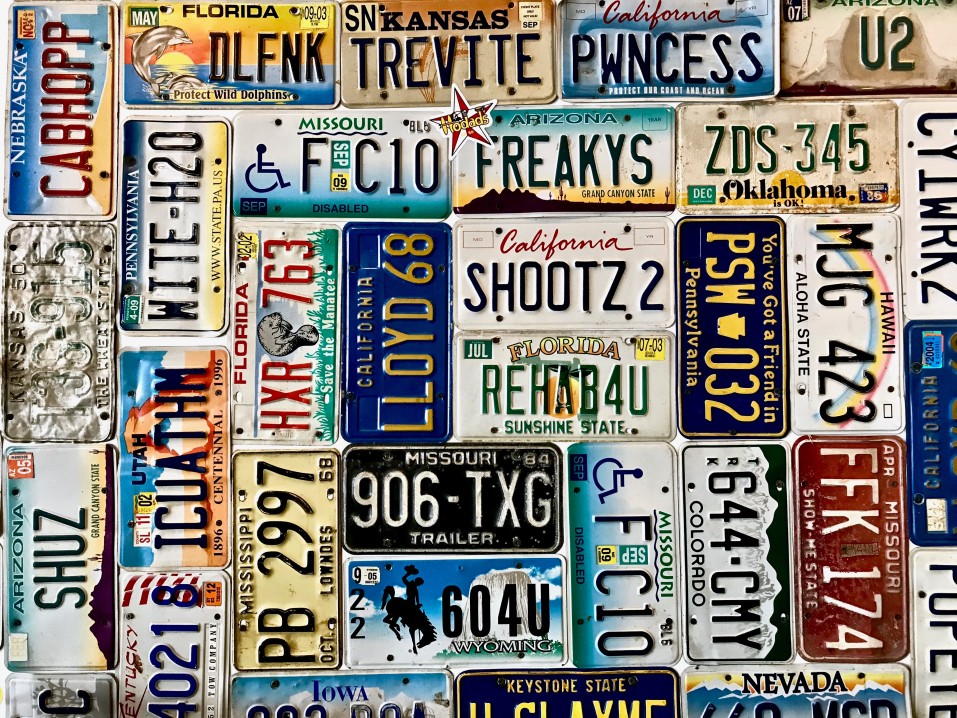
We're all about giving drivers second chances and helping them learn from their mistakes. So that's why we think it's silly that a driver that's been convicted of driving while intoxicated can never apply for or receive a personalized license plate. Like we said, everyone makes mistakes - and while driving while under the influence is certainly a very serious one, this law seems a little bit harsh.
[/framed_box]
Regardless of your take on any of these New Jersey driving laws in this piece - or any other laws that we didn't mention in here - it's important to keep in mind that laws are in place for a reason. Usually, that reason is to keep motorists and pedestrians safe. In our New Jersey defensive driving course, we'll cover these laws and more. Contact us today for more information.
How Much Does NY Defensive Driving Course Save Me on Insurance?

The cost of auto insurance can be enormous, especially if your NY driving record is not clean. However, that is not the only thing that can cause your auto insurance cost to skyrocket. Sometimes it also depends on the age of the vehicle, the color of the vehicle, and even your own age at the time of coverage. To put it simply, some vehicles are more expensive to insure because they may be more likely to be driven fast or because they are worth more.
This is not always something you would like to change on your end. However, if you have a less than desirable NY driving record, then taking a
NY defensive driving course can lower your auto insurance costs for sure.
[framed_box]
How Much Does NY Defensive Driving Course Save Me on Insurance?
The amount that you can save on your auto insurance varies depending on the individual as well as by your auto insurance company. However, if you have a high auto insurance cost every month, then you can save a good chunk of change by simply taking and passing a
defensive driving course.
For New York drivers or those with a NY driver’s license, you can expect to save up to 10% on the cost of your auto insurance every month. For some people, this can be a significant amount of money every month and the cost of the
defensive driving course will pay for itself in no time at all.
The reason for the 10% reduction in cost is because it is something required by the New York State Insurance Commissioner by law. This reduction is also required to last for 3 years by the law and it pertains to all insurance companies that write policies for NY residents. The 10% cost reduction is from the base rate of the current liability, collision, and no-fault premiums currently on the policy at the time that the insured individual presents the insurance company with the proof of completion of the course.
The course is called a Point and Insurance Reduction Program (PIRP course), NY Defensive Driving course or NY 3-Year Renewal course. It must be completed through a NYS DMV approved course provider.
[/framed_box]
[framed_box]
Other Things to Understand About This Program
Since the insurance reduction of costs is only valid for three years, if the person who is insured wants to continue with the lowered cost and benefit, then it is essential that the course be taken again and passed. This can be done through an online program as well to help with ease. One major thing to make note of with this program has to do with the policy if there is more than one person named on the premium. If this is the case, then the reduction on the insurance premium is applied to all of the vehicles on the policy that are operated by the driver who took the course. However, it does not apply to all drivers on the policy if they did not all complete the course. It will only be applied to one driver. If all drivers would like to have the reduction in their insurance costs for the policy, then each driver must take the course.
Taking the course is easy, just like saving money each month on auto insurance. Every driver has the option to take the course online or in a classroom. Taking it online allows for the driver to take the course at their own pace and ensure that they understand all of the material. Once you take the course and pass, you can take the certificate of completion to your insurance carrier to get your discount.
[/framed_box]
Other Resources
When To Take Your NY Defensive Driving Course

The state of New York mandates that an approved defensive driving course result in lower insurance premiums. In the case of New York, insurance premiums are required to be lowered by 10% for three years after you take the course. Many people do take this course specifically for the lower insurance premiums.
However, there are also many people who take the course to get points taken off their license. For people who have both needs, this course is WELL WORTH your time. Even if you only need to reduce your insurance premiums, this course is very beneficial. To learn more about the New York PIRP course and when you should take it, read on.
[framed_box]
You Can Start and Finish NYs Defensive Driving Course on the Same Date
Approved
NY defensive driving courses are required by the State of New York to be at least six hours if you are taking it in a classroom and at least 5 hours and 40 minutes if you are taking it online. You do not have to do the course on one day, but the vast majority of people do. The only time requirement enforced by the NY DMV is that one must finish the course within 30 days of enrollment.
[/framed_box]
[framed_box]
When Should I Submit Paperwork from This Defensive Driving Online Course for a New Policy?
It is very important to communicate with your personal auto insurance agent regarding defensive driving course due dates and policy payment timelines. Some companies are more lenient than others when it comes to calculating auto insurance discounts based on the date you completed a
defensive driving course. If you want to make sure they are incorporating your discount among monthly or bi-annual payments then it would be very wise to speak with them a couple of months before you plan on taking the course.
You will be responsible for sending the paperwork to your insurance company. The defensive driving school will report your completion to the NY DMV. An online course is required to send the information within 30 days. Keep in mind that you still need to submit the paperwork at least two weeks before you get a new policy. For example, if you are planning on getting a new policy on January 30th, you should get your insurance agent your paperwork by January 16th at the latest.
When Should I Renew My Approved DMV Defensive Driving Course?
You should look and see when your three-year discount expires so that you know when to renew your course. For examples, if your discount expires on December 31st, you should take the course no later than December 15th and send the paperwork to your insurance provider immediately. They will have plenty of time to process the paperwork and apply your discount.
[/framed_box]
[framed_box]
Benefits of Taking a PIRP Course Online
There are several benefits for taking a DMV course online. An online course allows you to stop and restart the course as often as you like within the comfort of your own home or the convenience of taking it while at the office. Also, some courses, such as the MyImprov.com NY Defensive Driving course, will have a downloadable copy of the proof of completions certificate available to print once you finish and pass the course. Although many insurance companies will give you the 3-year renewal discount in exchange for this printed copy, others do not. Some require the original certificate.
Again, make sure you communicate with your agent to see what they recommend.
[/framed_box]
How Much is a New Jersey Speeding Ticket?
[framed_box]
Speeding Tickets in Different States:
[/framed_box]

If you drive over the speed limit, you run the risk of getting pulled over for speeding. When you are pulled over, the police officer has the discretion to issue you a warning or write you a ticket. If you were one of the unlucky ones who received a ticket, you may find yourself wondering how much a New Jersey speeding ticket will cost you. The fine associated with the speeding ticket is not the only expense you will incur because of the ticket. You may decide to participate in traffic school if you are eligible or you may take allow the ticket to hit your driving record and have surcharges issued by the state for poor driving. Here are a few of the ways that a New Jersey speeding ticket can cost you and the expenses associated with the ticket.
The Cost of the Speeding Ticket Itself

If you are caught speeding, the amount you are fined varies based on where you were speeding and how many miles over the speed limit you were going. For a simple speeding violation, one where you are going one to nine miles over the speed limit, your fine will be $85. If you are 15 to 19 miles per hour over the speed limit, the fine increases to $180. And if you are 30 to 39 miles per hour over the speed limit, your fine will be $240 to $260. Additionally, there are factors that increase fines. If you are in a construction zone, in a safe corridor, in a school zone or speeding through a crosswalk, your fines will increase. If you are looking to find out what the exact fine is for your violation, be sure to check out this chart. Also, keep in mind that these are standard fines. If you go to court and appeal the ticket, the judge has the discretion to throw the ticket out or reduce your fine amount.
New Jersey SPEEDING TICKET COST TABLE
| 1 - 9 m.p.h. |
$85.00 |
$140.00 |
2 Points |
| 10 - 14 m.p.h |
$95.00 |
$160.00 |
2 Points |
| 15 - 19 m.p.h. |
$105.00 |
$180.00 |
4 Points |
| 20 - 24 m.p.h. |
$200.00 |
$360.00 |
4 Points |
| 25 - 29 m.p.h. |
$220.00 |
$380.00 |
4 Points |
| 30 – 34 m.p.h. |
$240.00 |
$400.00 |
5 Points |
| 35+ m.p.h. |
$260.00 |
$420.00 |
5 Points |
*If you are caught speeding in a work zone, safe corridor, or 65 mph zone, your fine will be doubled!
Points

The state of New Jersey uses a point system. If you are given traffic tickets or involved in car accident, you receive points on your driving record. The number of points you receive for a speeding ticket varies, based on how many miles over the speed limit you were going. You receive two points if you are 1-14 miles per hour over the speed limit, four points if you are 15 to 29 miles per hour over and five points if you are 30 miles per hour over the speed limit or more. If you exceed more than six points in a three year period, the state of New Jersey will issue you a $150 surcharge plus $25 for each additional point. These fines remain in effect yearly until your points drop below six and if you fail to pay, you can lose your license. If you go a year with no infractions, you lose three points, which is the best way to reduce your points.
Traffic School Costs

Another way to reduce the number of points you have on your driving record is to take traffic school or a defensive driving course. In New Jersey, you can take
NJ traffic school to remove two points from your record once every five years. Because of this, you may wish to participate in driving school if you have received a speeding ticket. In New Jersey, the lowest price allowed by law for this course is $20. There is no maximum cost allowed by law. Additionally, once you complete one of these courses, insurance companies may reduce your insurance by up to ten percent for two to five years.
If you are pulled over for speeding, research shows that being honest with the cop about why you are speeding, as well as being polite and courteous, are the best ways to avoid a ticket. However, no matter how honest or polite you are, some days a cop has a no-tolerance stance and will issue you a ticket. When this occurs, that speeding ticket will cost you. Learning how much will help you budget so you can pay off the fine and the associated costs.
Different States Speeding Ticket
Why Take a Defense Course?

One of the unfortunate facts of life is that we are at the mercy of others. It does not matter how nice or civil you are. If you have the misfortune of crossing paths with a malevolent or careless individual, there is a chance you will endure harm. This is precisely why you need a solid line of defense.
The Value of Taking a Self-Defense Course
All sorts of self-defense courses are available, from traditional karate to Brazilian Jiu Jitsu, Krav Maga and so on. The common theme amongst these courses is that considerable preparation is necessary to stay safe and avoid harm. There is a good chance you will eventually encounter a physically aggressive person at some point in your life. From purse-snatchers to drunks looking for a fight and beyond, some people are willing to engage in physical confrontations with completely innocent victims. It is important to recognize this danger and prepare accordingly. Complete a self-defense class and you will have the confidence you need to go out in public and do as you wish. This is especially true for women, seniors, individuals without a large frame and others who might be considered to be easy targets.
Keep Your Vehicle Safe with a Defensive Driving Course
You can protect your vehicle with a defensive driving course just like you can protect your body with a self-defense course. It is quite concerning to think about the fact that you can follow all the rules of the road, maintain a moderate rate of speed and be extremely cautious only to endure an auto accident due to another driver's negligence. Take a defensive driving course and you will greatly reduce the odds of such an accident. This course teaches you how to drive in a defensive manner that prevents accidents, tickets and road rage.
If you haven't taken a defensive driving course in the past year, it is time to sign up for one, especially if you live in NY, NJ or a state where your auto insurance company will offer you a huge discount for taking the course. Also, there is a good chance you have forgotten some of the subtle rules of the road and strategies to avoid collisions, tickets and other unpleasant incidents while behind the wheel.
Keep Yourself Safe with a Defensive Course
A defensive driving course will serve as a valuable refresher on what to look out for while on the roads and highways. It will also boost your driving prowess to reduce the chances that you cause an accident that harms others, their vehicles and your own person or vehicle. In the end, a defensive driving course has the potential to save you thousands of dollars in automobile repair costs and hundreds or thousands of dollars on potential insurance hikes resulting from accidents. Most importantly, learning how to drive defensively will greatly reduce the odds of a painful injury that spurs costly medical treatment and might even prevent you from working.
Protect Yourself on and off the Road
Your defensive driving course instructor will teach you valuable tactics to avoid damage to your vehicle as well as your body. Think of defensive driving as a self-defense course for your body when positioned inside of a vehicle. You are still in danger of physical harm even though the party at fault does not mean to harm your person. This educational driving course is exactly what you need to avoid a painful accident when traversing the crowded roads. The strategies you learn just might make the difference between a nasty accident that harms the occupants in your vehicle and narrowly escaping a collision, allowing you to make it to your destination unharmed.
Top 10 Defensive Drivers in The World

Do you ever think while driving that you are truly one of the best defensive drivers in the world? You feel invincible because nobody has ever crashed into you… due to your impeccable ninja driving skills that manage to help you dodge all the bad drivers on the road… and you have even managed to never get a ticket by avoiding the police and speeding under the radar. You are truly one of the top defensive drivers in your hood, a master of driving! However, the below drivers may have you beat ?
1. Mad Max
I know what you’re thinking: Nobody from Mad Max can possibly be considered a great defensive driver. Think again! Have you seen all the armor on the Mad Max vehicles?! There is absolutely no possibility that another vehicle can get through that armor and damage their vehicle or hurt them!
2. Driving Miss Daisy
For those that are not familiar with the movie, an elderly woman, Miss Daisy, wanted to keep her independence, but ended up crashing her car. After she does this, her son arranges for her to have a chauffeur. Want to know the best way that you can be a safe, defensive driver? Don’t even drive at all! Have somebody else drive you around. You will never crash into anybody or get any tickets. Plus, you can have all the margaritas you want and still make it home safe!
3. Trojan Warrior
Back in the heyday of the Trojans, they galloped around in some pretty fancy chariots. Of course, these defensive drivers had their swords and shields to use for defensive purposes to protect themselves and their chariots. How could they not be safe drivers with all their armor?
4. An Individual with a Pillow Filled Car
Have you ever driven in a car that is filled to the brim with pillows? Of course not! Most people haven’t, but that one random individual that does travel in pillow heaven would have the benefit of being super safe with all that extra padding. It’s like driving on a cloud. Every hump and bump on the road is A-Okay because he does not feel a thing! Yay for money saved because it should keep the “bodily injury” costs down… hopefully!
5. A Driver on Carmageddon
The best Carmageddon drivers were witnessed in the original, when everyone was driving cars like yours and you had to kill them. Everyone was out for blood. Of course, some might argue that better defensive drivers are in the second version... because it is safer to drive when there are absolutely no other drivers/or when only zombies on the roadway. If nobody else is around, nobody can hit you. As a bonus, you can drive as crazy as you want and there’s nobody else around to get in your way!
6. Power Rangers
Anybody that grew up in the 90’s knows that the Mighty Morphin Power Rangers vehicles were pretty awesome and when they joined together, they formed the super-powerful Megazord. No villains or other vehicles, none the less, would possibly mess with the Megazord, if they came across it on the road.
7. Demolition Derby Driver
I know, I know, the whole point in a demolition derby is crashing and completing demolishing other vehicles, so this one is a shocker. However, within those cars, the driver has special racing straps/seatbelts, that keep them firmly in their seat. In addition, typically, there are alterations to the car to keep the driver safe. Plus, they must be skilled drivers to win!
8. Michelin Man
The Michelin Man would be the safest of safe drivers. He is just made of tires, fluff, and air, so any bumps on the road wouldn’t hurt a bit. He has been representing Michelin tires since 1894, so he should know a thing or two about cars and driving!
9. Bumper Car Driver
While bumper cars can get a tad bit bumpy, these drivers could not be any safer! Firstly, they never leave the amusement park. Careening down the path at a whopping top speed of 2 mph, they are far from fast and furious! Plus, they can only drive in one direction… in counter-clockwise circles… within a 50 ft. x 50 ft. pen! Most of the fellow drivers are children that are out to get their siblings or friends. Even if the driver comes across a child that happened to develop a personal vendetta against them upon first glance, they have that lovely bumper buffer to absorb the blows of their tiny attack. Plus, there is always a competent ride attendant present to chaperone all the hustle and bustle of the two-minute ride. Bump away!
10. Someone who hasn’t bathed in over 3 months
The smellier, the better to keep other cars away! They just need to roll the window down and let their au natural Eau de Parfum do the talking. Just like the Grinch, nobody would want to touch him or his car with a thirty-nine-and-a-half foot pole!
Where To Buy Used Cars in NY

You likely have considered purchasing a used car at some point in the past. Even if you never actively looked for one, you surely have an idea of the frustrations that come along with searching for a used automobile. If you are on a budget, a used car is your best bet. What kind of feelings and thoughts does it invoke in you?
No matter what you think about when it comes to pre-owned vehicles, the fact of the matter is that they are being sold all over the place. The quality can be hit or miss - you may find one that you wouldn't mind buying just to fix up and have one of your favorite automobile models. Carefully consider your options, as you did when picking a
NY defensive driving course, when you are looking for where to buy used cars in New York.
Car Dealerships
There are numerous car dealerships that cater to people who are buying and selling used vehicles. There should be a few of them within a reasonable distance from where you live. It can help to know about the reputation of this business prior to visiting, though. You can search for reviews on services such as Yelp and other business rating sites. Also, you may want to ask around if anyone you know can recommend a dealership that will give you a wide selection in your price range.
Online Buying
When you just want to browse through pages of options online, there are websites that allow you to do so. One of the top sites for this in NY is Auto Trader. You will be pleased to see that there are both new and pre-owned automobiles that have been listed through Auto Trader. The front page of the listings offers you many details, then you can find much more by clicking on the one in which you are interested.
With such an ideal way to show you where to find and buy used cars in NY, you are sure to experience remarkable success. You can conduct a search by different qualifiers, including price starting at lowest and highest, mileage by lowest and highest, alphabetical by make and model, distance from the zip code that you input, and year by oldest and newest. Also, you can choose the specifications that interest you to narrow down your options. It really is a convenient way in which to shop for a vehicle that will be less expensive than you might find otherwise.
Classifieds
Though they tend to get a bad rap, broad format classifieds like Craigslist and similar websites will help you to connect with people who have a car for sale quickly. You may be nervous about the idea of meeting up with someone who you meet in such a way, but you always can call them and screen your options. Once you are ready to go and have a look at a vehicle, ensure that you can meet the individual in a public place. This will take the stress out of the situation for both parties.
If you happen to decide that you would like to buy the car, you should come up with a basic sale contract. This will protect you in the instance that you learn of some issue that was not disclosed when you paid for the vehicle.
As you can see, there is a great deal to keep in mind with used cars. Once you know where the best physical or online location is for finding used cars in NY, you can use the resources to your advantage. Use caution and take your time to find just the right automobile for your needs.
How to save on car insurance: A guide for first time NYC drivers
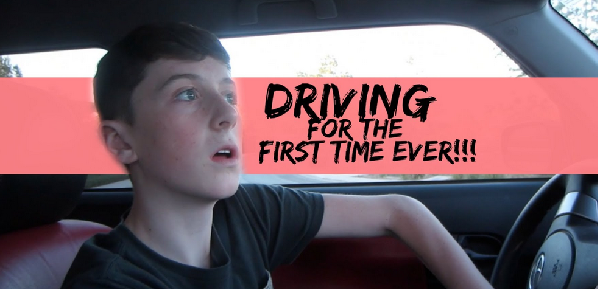
Is this your first time owning a car? If so, then you are probably excited. With a personal vehicle comes the freedom of movement everyone desires. No more waiting on buses and subways. You can now come and go whenever you want, uninhibited by transit schedules.
But, you must always remember that car ownership entails great responsibility. Motorists hold their own safety and that of others in their hands. This is why you must have auto insurance in case you are involved in an accident. NYC wants you to be able to pay for any damage caused.
So, now you are probably wondering how much will this car insurance cost, right? Good question.
Read on to find out some of the factors that can raise and lower policy rates for a first-time NYC driver.
[framed_box]
How does age impact my auto insurance rates?
As is true of most first-time drivers, you are probably young of age. If so, be prepared to pay more than the national average for your auto insurance.
In general, insurance companies charge more for young first-time drivers for two reasons. First, the driver is at an impressionable age. They are more likely than older adults to drive fast when hanging out with friends. Also, drinking and driving is a known problem among teens and young adult motorists.
Second, you are a first-time driver. Even if you are advanced in age, insurers will probably charge you a bit more. Your inexperience works against you here.
[/framed_box]
[framed_box]
Does my neighborhood impact my auto insurance rates?
Certain neighborhoods and boroughs in NYC are ridden with crime. Many of the criminals are car thieves. As a result, if you reside in one of these areas, expect to pay more than normal to be insured.
The risk is just higher than if you lived in a safer community.
[/framed_box]
[framed_box]
Does a defensive driving course lower my auto insurance rates?
You can lower your rate by taking
driver education classes.
Young people often mitigate some of the extra charges heaped upon them because of age by taking driving classes in high school.
Every driver can benefit by enrolling in a
New York defensive driving course. The schools offer classes both online and in-person. Best of all, after course competition, you receive a 10 percent auto insurance discount for the next three years.
[/framed_box]
[framed_box]
What impact does my vehicle type have on my car insurance rate?
Insurance companies also look at the type of vehicle when assessing rates. Some models get stolen more than others. Owners will have to pay more because of this risk.
In other cases, you may own a sports car known for having horsepower more than what the average motorist can handle. And, your insurer may well raise your policy rate because of this fact.
[/framed_box]
[framed_box]
How much does my credit score influence my auto insurance rate?
Since you are a first-time driver with no driving history, the insurance company will take other factors into consideration. One is your credit rating.
If you have good credit, the company may lower your insurance rate a bit. A positive credit score proves you are a responsible person in general.
[/framed_box]
[framed_box]
Does my education background impact my car insurance rate?
Likewise, college students can get lower than normal rates for first time drivers. Their desire to seek a higher education is positive. They are high achievers. They are presumed to perhaps better understand the effects of risky driving on society.
[/framed_box]
[framed_box]
Time to get insured and save money with our tips!
Now that you know how the insurance companies decide how much to charge first time drivers, you are ready to get insured.
Try to work on things you can change. For example, attend a
New York defensive driving school, pay off outstanding credit cards and enroll in college classes. These types of decisions will make you appear more responsible and can result in a lower insurance rate.
[/framed_box]
What Kind of Car Should I Get?

If you are in the market for a new or used vehicle, you might feel overwhelmed by the number of options. Don't be paralyzed by the seemingly endless amount of information to sort through. The best way to figure out the perfect type of vehicle for your needs and desires is to spend some time reviewing what you require in an automobile and how it will be used.
Think About What You Need the Vehicle For
The type of vehicle you select should suit your specific automotive needs. Be practical with this decision. Always opt for function over form. Think about what you will use the vehicle for. Maybe you have a large family or own a business and need ample space to transport people/cargo. Consider the road conditions of your area and the places where you will venture for road trips. These conditions will partially determine whether you should purchase a vehicle with all-wheel drive. If you have an especially long commute to work or school, fuel efficiency should be a top priority.
If you have been injured in an accident in the past or if you are transporting youngsters, you should key in on vehicles with top-notch safety features. If you plan on taking the vehicle off-road or using it for towing, don't opt for a diminutive sports car or sedan. You can whittle down the field to sport utility vehicles and trucks if you plan on embarking on off-road adventures or performing tows. Finally, consider the amount of space available on your property for parking. If you have a small garage or an especially narrow driveway, purchasing a monster sport utility vehicle, van or truck might not be prudent.
Vehicle Entrance and Exit
Sweat the small stuff when it comes to vehicle entry and exit. Think about who will ride in your vehicle. If you transport senior citizens or especially tall individuals, they will have difficulties entering a large sport utility vehicle or truck that requires the use of a stepladder for entrance. These individuals will also find it difficult to enter a low-slung sports vehicle.
Vehicle Handling
It is important to get a gauge of a vehicle's handling before committing to a purchase or lease. If you have driven a specific style of car for most of your life, it is time to test drive other types of vehicles. Take a sports car, coupe, sedan, truck, sport utility vehicle and/or van for a ride. Get a feel for how each handles. You might find those midsize sedans you have been driving your entire life handle somewhat similar to crossover sport utility vehicles. If you end up getting a vehicle with crisp handling and rapid acceleration, don't let the extra power result in a speeding ticket. If you are ticketed, enroll in a
defensive driving course so you don't end up with points on your driving record and a higher insurance rate.
Be sure to pick the salesman's mind before, during and after your test drive. He will educate you about the ins and outs of each particular vehicle to help you decide on the perfect automobile for your unique needs. The salesman can also point you in the direction of a specific style of vehicle that suits your idiosyncratic requirements for handling, power etc.
Think About What You Desire in a Vehicle
Though automotive needs should always trump desires, this does not mean you should select a vehicle simply because it provides superior utility. After all, a minivan might suit your needs yet disappoint in the looks department. Find the right balance between utility and style, performance and high-tech niceties. Keep in mind that a practical vehicle with an attractive exterior, precise handling and an array of features will likely fetch a better price when the time comes to sell.
What are Riders in NY Insurance?

Like every other motorist, you must have NY insurance. There is no way around it. If caught driving without auto insurance, well, you do not even want to know that will happen. It is bad!
So, you have your insurance. But, does the policy really suit you. Did you ask for the agent to personalize things?
Many people do not know that almost every single insurance policy can be modified. You can add terms that will make the policy more beneficial. And, why not? You are the one who is paying. You are who will need the insurance payouts when things go wrong.
Always remember that when the company writes its standard policies, they are thinking about their own risk. The contract is in their best interests. You need to be smart and add riders, which are special terms, to the policy.
Sit down with your insurance company representative and discuss your specific needs. Then add these special conditions.
Following are some of the more popular auto insurance riders in NY.
Rental Car
What if your car breaks down or is destroyed in an accident? You will have to rent a car while things get fixed. One or two days is not all that bad. But, what about a few weeks? Those payments can prove financially draining.
Adding a rental car rider to your insurance can be a smart move. Most likely, the insurance company will want to set a predefined time period, for example, three weeks, in which they will pay for a rental car. Hopefully, you have your car back within the agreed upon timeframe.
Safe Driver
You can also add a safe driver rider. If you go without any major traffic infractions or accidents for a lengthy period, your insurance rate would be lowered.
Fortunately, you already have a de facto safe driver rider. If you complete a
defensive driving NY course, you get an automatic 10 percent auto insurance rate discount for the next three years. Classes are held both online and in-person for your convenience.
One Accident
Everyone makes mistakes. You might do so while driving and cause an accident.
If you are at fault to any extent, even partly, in general, your insurance rate increases. You can prevent this from happening by adding a one-accident rider. It is a freebie for the first time “offender,” so to speak.
Roadside Assistance
This rider allows you to call for emergency assistance at any time without having to pay.
These riders are great deals because you never know just when your car will leave you stranded. When it happens, the last thing you want to worry about is whether you have the extra cash to pay for a tow truck or mechanic.
Vehicle Depreciation
This rider gets you a promise that the insurance company will not take any depreciation of car value into consideration for a certain agreed upon period.
Car Theft
Good for those who reside in high crime areas. For example, you can get a promise not to consider your high-crime location if you park your car in a secured location, such as a private garage.
Also, you can get this rider if you can prove that your neighborhood is changing. Perhaps the insurance provider will not raise your policy so long as the crime rate continues to decline in the area.
Time to Get the Policy You Deserve
No need to accept a boilerplate insurance contract. Ask for reasonable riders, those insurance terms that are of specific benefit to you.
What County is Clifton Park NY in?

Are you planning to relocate and looking for a nice community? Perhaps you are raising a family? Or, maybe, you are a hi-tech worker with their own lucrative startup company. If so, you probably want to look at Clifton Park, NY. This residential suburb in upstate New York has a lot to offer.
Now, do not make the mistake of many wannabe transplants. They somehow have the idea that the town is within the Greater New York City metro area. Sorry, that is just wrong. If you are wondering what county Clifton Park, NY is in, the wait is over. The town sits in the southern portion of Saratoga County, about 12-miles north of the capital, Albany.
Population
About 40,000, residents call Clifton Park home. These households enjoy a relatively high income when compared to the rest of the national. At $83,000, the average income makes the suburb one of the more so-after locales in the state. Less than three percent of the population lives below the poverty line.
Demographics
In general, Clifton Park is not as diverse as many would like. Almost everyone has well-paying jobs. Nevertheless, it goes without saying that the friendly neighbors go out of their way to make all feel at home.
Traffic Conditions
Though having only 40,000, people, Clifton Park is a very busy place. Workers are up early each morning rushing to their jobs. Students are off to attend the award-winning local schools. As a result, the area witnesses its fair share road accidents. After all, this is New York. Officers issue a fair number of traffic citations.
Fortunately, anyone who wants to become a safe driver can take a
NY defensive driving course. These days, the classes can even be done online. This option proves even more convenient because students can access the course material over the various platforms, including mobile devices.
Best of all, after course completion, drivers can have any outstanding traffic tickets erased and the state awards a mandatory 10 percent auto insurance discount for three years.
Economics
It may not be Silicon Valley, but Clifton Park sits in the heart of the New York Tech Valley. Some of the most educated and talented technology professionals call the area home.
To further facilitate growth, the town government has been buying up property. As of now, over 1000-acres has been purchased for development. The goal is to make Clifton Park the place where top hi-tech firms want to relocate.
Things to Do
Residents love spending time in the local parks watching kids play sports. There are football, hockey, soccer and lacrosse leagues, to name just a few. Not to be left out, baseball is very popular here. In fact, the Boys Babe Ruth World Series is often played right in town.
Getting There
Motorists can reach Clifton Park from New York City via Interstate-87. The three-hour drive is picturesque as the area is dotted by green spaces and Erie Canal hamlets.
The train from Manhattan takes about four and a half hours, the same as the bus.
So, where is Clifton Park?
As shown here, Clifton Park is located in a prime spot in upstate New York. Residents and visitors can easily get to Albany or Manhattan for day trips or to conduct business.
A quiet suburban community, Clifton Park is ideal for those who want to enjoy the simple life, while not forging modern amenities. Give the town a chance. You may never want to live anywhere else.
How Much is A Speeding Ticket in Arizona?
[framed_box]
Speeding Tickets in Different States:
[/framed_box]
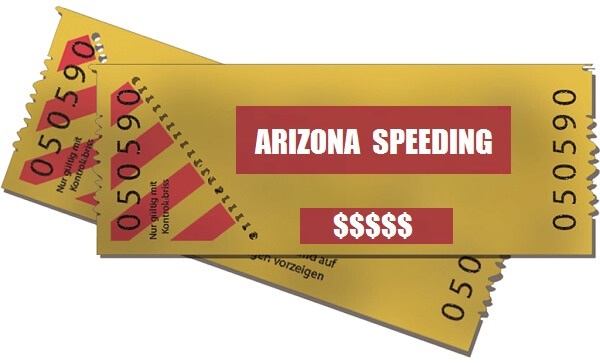
The state of Arizona makes use of several unique methods to nab speeders. Arizona drivers must be aware of stationary traffic cameras, officer radar guns, unmarked police cars and beyond. If you are pulled over for speeding, you will likely receive a fine as well as points on your driving record/license.
It is important to note that specific speeding fines differ by city and county. As an example, someone caught speeding in Flagstaff will not face the same fine as someone who is nabbed speeding in Tucson. Additionally, those who have not been caught speeding in the past will likely face less of a fine than those who have received multiple speeding tickets.
Begin your online course today to get rid of that ticket.
The table below displays the top 5 counties
Arizona drivers get caught speeding in. Traffic school prices differ based on individual court diversion fees. Take a look at the ultimate savings here:
| Maricopa |
|
|
|
|
10-14 mph |
$250 |
$203.95 - $265.95 |
|
15-19 m.p.h. |
$300 |
$203.95 - $265.95 |
|
20+ mph |
$350-$450 |
$203.95 - $265.95 |
|
Traffic Camera |
$165-$200 |
$203.95 - $265.95 |
| Cochise |
|
|
|
|
10-14 mph |
$250 |
$103.95 - $253.95 |
|
15-19 m.p.h. |
$300 |
$103.95 - $253.95 |
|
20+ mph |
$350-$450 |
$103.95 - $253.95 |
|
Traffic Camera |
$165-$200 |
$103.95 - $253.95 |
| Mohave |
|
|
|
|
10-14 mph |
$250 |
$103.95 - $228.95 |
|
15-19 m.p.h. |
$300 |
$103.95 - $228.95 |
|
20+ mph |
$350-$450 |
$103.95 - $228.95 |
|
Traffic Camera |
$165-$200 |
$103.95 - $228.95 |
| Pima |
|
|
|
|
10-14 mph |
$250 |
$103.95 - $233.95 |
|
15-19 m.p.h. |
$300 |
$103.95 - $233.95 |
|
20+ mph |
$350-$450 |
$103.95 - $233.95 |
|
Traffic Camera |
$165-$200 |
$103.95 - $233.95 |
| Pinal |
|
|
|
|
10-14 mph |
$250 |
$103.95 - $233.95 |
|
15-19 m.p.h. |
$300 |
$103.95 - $233.95 |
|
20+ mph |
$350-$450 |
$103.95 - $233.95 |
|
Traffic Camera |
$165-$200 |
$103.95 - $233.95 |
For complete list of AZ Court Diversion Fees:
Click Here
[framed_box]
Show Arizona the Money

Police officers are required to follow nuanced guidelines when determining the value of a speeding ticket. However, in some instances, the officer will consider the driver's level of resistance/compliance when determining the cost of the speeding ticket. In other instances, the officer will follow the specific formula that determines the cost of a speeding ticket. If it is determined that you were driving more than 10 miles per hour beyond the speed limit, the financial penalty for your ticket will rise quite dramatically.
A speeding ticket for driving 10 miles per hour beyond the speed limit runs $250. This cost increases $50 for every 5 miles per hour beyond 10 miles per hour above the speed limit.
A speeding ticket for driving 20 miles per hour over the posted speed limit can be increased by $200 more than the initial $250 fee. Driving at such a fast rate of speed can also result in the suspension of the driver's license. It is even possible for the license to be revoked when the
traffic stop occurs.
The amount of the speeding ticket can be changed according to whether the driver was nabbed speeding by one of the state's stationary
traffic cameras. This style of speeding ticket is sent through the mail. It requires the driver to pay a set cost of $165 along with an additional $30 in fees and surcharges.
[/framed_box]
[framed_box]
Show Traffic School the Money - It's CHEAPER!

It is usually less expensive to take and pay for
AZ defensive driving course, not have any points added to your driving record and avoid having your insurance rates up than to pay your ticket, have points added to your record and have your auto rates increase dramatically.
[/framed_box]
[framed_box]
Eligibility and More

Arizona allows residents to enroll in traffic school once every 12 months. When you take the course, it will only dismiss one traffic related offense. Be sure to look up fines and points for all violations (if you received more than one) before you tell the Traffic School which offense you want the school to dismiss.
Top violations:
Speeding: 3 points
Running a red light or stop sign: 4 points
Failure to yield: 4 points
[/framed_box]
[framed_box]
Criminal Speeding
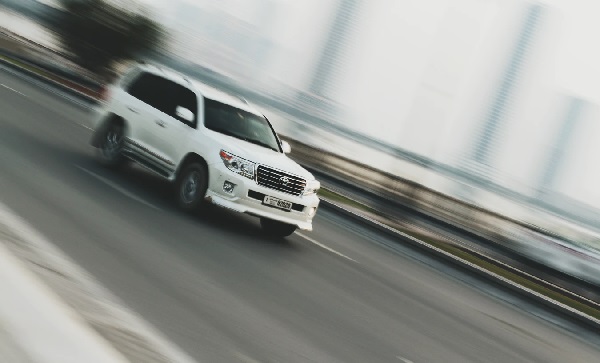
Speeding at an excessive rate, known as “criminal speeding”, can result in upwards of 30 days in jail and a $500 fine. Additional penalties for criminal speeding include paying to have the vehicle retrieved from the space it was towed to. Criminal speeding occurs when a driver goes 85 miles per hour or more anywhere in Arizona. A driver exceeding 35 miles per hour near a school crossing can also be found guilty of criminal speeding.
A driver who exceeds the posted speed limit by 20 miles per hour in a residential or business area can also be found guilty of criminal driving. If no speed is posted in a residential or business area, one driving 45 miles per hour or more beyond the speed limit will face the possibility of a criminal speeding charge. Aside from fines and possible jail time, such a charge can also impact one's ability to legally operate a motor vehicle.
[/framed_box]
 You’re seeking a coming-of- age story—you, your best friends, and the open road. Or, you’re
middle-aged, trying to escape suburbia and relive the glory days. But whether you’re seeking to
live out Motorcycle Diaries or the equally acclaimed Wild Hogs, what better place in the entire
world to do it than the state of New Jersey? If you’re exhausted with complacency and seeking
adventure, then buckle up while we give you New Jersey facts to help you live out your story.
And try not to become a violent revolutionary in 1950s Cuba.
[framed_box]
You’re seeking a coming-of- age story—you, your best friends, and the open road. Or, you’re
middle-aged, trying to escape suburbia and relive the glory days. But whether you’re seeking to
live out Motorcycle Diaries or the equally acclaimed Wild Hogs, what better place in the entire
world to do it than the state of New Jersey? If you’re exhausted with complacency and seeking
adventure, then buckle up while we give you New Jersey facts to help you live out your story.
And try not to become a violent revolutionary in 1950s Cuba.
[framed_box]
 When someone's license is suspended, it means that it's temporarily out of service. In other words, if you have a suspended license and decide to drive a vehicle anyway, you're breaking the law. And in Georgia, the penalty for driving on a suspended license is an extension of the suspension by six months.
There are many reasons as to why your license may be suspended. There are also some things that you can do to ensure that you're back legally operating a vehicle on said license, like completing a defensive driving course Georgia. This post will take a closer look at how to learn if your license is suspended and what to do about it:
[framed_box]
When someone's license is suspended, it means that it's temporarily out of service. In other words, if you have a suspended license and decide to drive a vehicle anyway, you're breaking the law. And in Georgia, the penalty for driving on a suspended license is an extension of the suspension by six months.
There are many reasons as to why your license may be suspended. There are also some things that you can do to ensure that you're back legally operating a vehicle on said license, like completing a defensive driving course Georgia. This post will take a closer look at how to learn if your license is suspended and what to do about it:
[framed_box]
 First things first, how do you know whether you have a suspended license? The good news is that this is fairly easy to find out - all you need to do is check your record. This can be done by either contacting the Georgia Department of Motor Vehicles by phone or by logging on to the Georgia DDS website. When you access your driving record, you'll be able to view moving violations, points on your license and whether the license has been suspended or revoked. If you check your driving record and see that your license has indeed been suspended, the next step is to figure out why.
[/framed_box]
[framed_box]
First things first, how do you know whether you have a suspended license? The good news is that this is fairly easy to find out - all you need to do is check your record. This can be done by either contacting the Georgia Department of Motor Vehicles by phone or by logging on to the Georgia DDS website. When you access your driving record, you'll be able to view moving violations, points on your license and whether the license has been suspended or revoked. If you check your driving record and see that your license has indeed been suspended, the next step is to figure out why.
[/framed_box]
[framed_box]
 In the state of Virginia, a point system is used to keep track of how well a licensed driver maintains his or her driving record. When points are added to a person's driving record, this means a positive incident has occurred, such as keeping a clean driving record for a period of 12 months. The lower the number of points a driver has, the closer he is to losing his driving privileges. The lower the number of points the driver has can also lead to higher insurance rates. This is why it is so important to have points added when possible. One of the best ways to keep points from being deducted is to take a VA driver improvement course online.
[framed_box]
In the state of Virginia, a point system is used to keep track of how well a licensed driver maintains his or her driving record. When points are added to a person's driving record, this means a positive incident has occurred, such as keeping a clean driving record for a period of 12 months. The lower the number of points a driver has, the closer he is to losing his driving privileges. The lower the number of points the driver has can also lead to higher insurance rates. This is why it is so important to have points added when possible. One of the best ways to keep points from being deducted is to take a VA driver improvement course online.
[framed_box]
 Everyone has a funny driving story. Some are unusual, some are silly – but no matter what type of driving story you have to tell, we’re sure that there’s some sort of entertainment value in it. And in the case that your driving story warranted a citation, there’s usually a defensive driving course that can help reduce any fines, offset ticket points, potentially lead to lower insurance premiums and, above all, just give you the proper refresher on how to drive safely the next time you might be in a similar situation.
With that said, here’s a look at some of the funny driving stories we’ve heard in our defensive driving courses from students over the years:
[framed_box]
Everyone has a funny driving story. Some are unusual, some are silly – but no matter what type of driving story you have to tell, we’re sure that there’s some sort of entertainment value in it. And in the case that your driving story warranted a citation, there’s usually a defensive driving course that can help reduce any fines, offset ticket points, potentially lead to lower insurance premiums and, above all, just give you the proper refresher on how to drive safely the next time you might be in a similar situation.
With that said, here’s a look at some of the funny driving stories we’ve heard in our defensive driving courses from students over the years:
[framed_box]
 It doesn't matter what state you live in, there are bound to be certain laws that you adamantly agree with and others that you don't agree with. Driving laws are no different - some are good, and some are, based on various opinions, bad. If you live in the state of New Jersey, you might want to just brush up on all of them because numerous studies routinely rank New Jersey drivers among the worst in the nation! It's why taking a defensive driving course in NJ is so common among motorists in the Garden State, whether drivers are looking to keep a citation off their record or proactively lower their insurance rates.
With all of this in mind, here's a part of what New Jersey residents can expect to learn in a defensive driving course when it comes to laws of the road. Like we said in the opening, some you might think are good and others you might not. Have a look:
[framed_box]
It doesn't matter what state you live in, there are bound to be certain laws that you adamantly agree with and others that you don't agree with. Driving laws are no different - some are good, and some are, based on various opinions, bad. If you live in the state of New Jersey, you might want to just brush up on all of them because numerous studies routinely rank New Jersey drivers among the worst in the nation! It's why taking a defensive driving course in NJ is so common among motorists in the Garden State, whether drivers are looking to keep a citation off their record or proactively lower their insurance rates.
With all of this in mind, here's a part of what New Jersey residents can expect to learn in a defensive driving course when it comes to laws of the road. Like we said in the opening, some you might think are good and others you might not. Have a look:
[framed_box]
 New Jersey is a congested state when it comes to motor vehicles, with many commuting to New York and elsewhere each day. Noting this, and the likelihood of traffic congestion, speed limits are designed to reflect this. For instance, on New Jersey interstates, the speed limit is 55 miles per hour. On highways, it's typically 65 miles per hour. In most other states, speed limits tend to be at least 5 miles per hour faster.
New Jersey is a congested state when it comes to motor vehicles, with many commuting to New York and elsewhere each day. Noting this, and the likelihood of traffic congestion, speed limits are designed to reflect this. For instance, on New Jersey interstates, the speed limit is 55 miles per hour. On highways, it's typically 65 miles per hour. In most other states, speed limits tend to be at least 5 miles per hour faster.
 According to New Jersey law, before motorists can pass a bicyclist or skateboarder, they first must honk. It's a bit of an odd law, but we think it's a good one. After all, not only are drivers giving fair warning to someone that they're passing, but depending on how annoying the skateboarder or cycler is acting, the honk can also let out some frustration. Unfortunately, not a lot of people follow this law. We think it's time to change that. Honk away everyone!
[/framed_box]
[framed_box]
According to New Jersey law, before motorists can pass a bicyclist or skateboarder, they first must honk. It's a bit of an odd law, but we think it's a good one. After all, not only are drivers giving fair warning to someone that they're passing, but depending on how annoying the skateboarder or cycler is acting, the honk can also let out some frustration. Unfortunately, not a lot of people follow this law. We think it's time to change that. Honk away everyone!
[/framed_box]
[framed_box]
 There are two steps that New Jersey drivers must pass to get their basic driver's license: a permit period and a provisional period. Drivers must drive supervised with a permit for six months before they can move on to the provisional license stage, which consists of one year of unsupervised, yet restricted, driving. In order to receive a basic driver’s license, where there are no restrictions, drivers must have completed both the permit and provisional stages without incident and be 18 years old. We like the emphasis on experience and safety, but some drivers might not like the restrictions during these various stages.
There are two steps that New Jersey drivers must pass to get their basic driver's license: a permit period and a provisional period. Drivers must drive supervised with a permit for six months before they can move on to the provisional license stage, which consists of one year of unsupervised, yet restricted, driving. In order to receive a basic driver’s license, where there are no restrictions, drivers must have completed both the permit and provisional stages without incident and be 18 years old. We like the emphasis on experience and safety, but some drivers might not like the restrictions during these various stages.
 We're guessing that this one doesn't get enforced too much, but it's still an odd one. We can't imagine too many people are happy when they get pulled over for a traffic citation.
We're guessing that this one doesn't get enforced too much, but it's still an odd one. We can't imagine too many people are happy when they get pulled over for a traffic citation.
 We're all about giving drivers second chances and helping them learn from their mistakes. So that's why we think it's silly that a driver that's been convicted of driving while intoxicated can never apply for or receive a personalized license plate. Like we said, everyone makes mistakes - and while driving while under the influence is certainly a very serious one, this law seems a little bit harsh.
[/framed_box]
Regardless of your take on any of these New Jersey driving laws in this piece - or any other laws that we didn't mention in here - it's important to keep in mind that laws are in place for a reason. Usually, that reason is to keep motorists and pedestrians safe. In our New Jersey defensive driving course, we'll cover these laws and more. Contact us today for more information.
We're all about giving drivers second chances and helping them learn from their mistakes. So that's why we think it's silly that a driver that's been convicted of driving while intoxicated can never apply for or receive a personalized license plate. Like we said, everyone makes mistakes - and while driving while under the influence is certainly a very serious one, this law seems a little bit harsh.
[/framed_box]
Regardless of your take on any of these New Jersey driving laws in this piece - or any other laws that we didn't mention in here - it's important to keep in mind that laws are in place for a reason. Usually, that reason is to keep motorists and pedestrians safe. In our New Jersey defensive driving course, we'll cover these laws and more. Contact us today for more information.
 The cost of auto insurance can be enormous, especially if your NY driving record is not clean. However, that is not the only thing that can cause your auto insurance cost to skyrocket. Sometimes it also depends on the age of the vehicle, the color of the vehicle, and even your own age at the time of coverage. To put it simply, some vehicles are more expensive to insure because they may be more likely to be driven fast or because they are worth more.
This is not always something you would like to change on your end. However, if you have a less than desirable NY driving record, then taking a NY defensive driving course can lower your auto insurance costs for sure.
[framed_box]
The cost of auto insurance can be enormous, especially if your NY driving record is not clean. However, that is not the only thing that can cause your auto insurance cost to skyrocket. Sometimes it also depends on the age of the vehicle, the color of the vehicle, and even your own age at the time of coverage. To put it simply, some vehicles are more expensive to insure because they may be more likely to be driven fast or because they are worth more.
This is not always something you would like to change on your end. However, if you have a less than desirable NY driving record, then taking a NY defensive driving course can lower your auto insurance costs for sure.
[framed_box]
 The state of New York mandates that an approved defensive driving course result in lower insurance premiums. In the case of New York, insurance premiums are required to be lowered by 10% for three years after you take the course. Many people do take this course specifically for the lower insurance premiums.
However, there are also many people who take the course to get points taken off their license. For people who have both needs, this course is WELL WORTH your time. Even if you only need to reduce your insurance premiums, this course is very beneficial. To learn more about the New York PIRP course and when you should take it, read on.
[framed_box]
The state of New York mandates that an approved defensive driving course result in lower insurance premiums. In the case of New York, insurance premiums are required to be lowered by 10% for three years after you take the course. Many people do take this course specifically for the lower insurance premiums.
However, there are also many people who take the course to get points taken off their license. For people who have both needs, this course is WELL WORTH your time. Even if you only need to reduce your insurance premiums, this course is very beneficial. To learn more about the New York PIRP course and when you should take it, read on.
[framed_box]
 If you drive over the speed limit, you run the risk of getting pulled over for speeding. When you are pulled over, the police officer has the discretion to issue you a warning or write you a ticket. If you were one of the unlucky ones who received a ticket, you may find yourself wondering how much a New Jersey speeding ticket will cost you. The fine associated with the speeding ticket is not the only expense you will incur because of the ticket. You may decide to participate in traffic school if you are eligible or you may take allow the ticket to hit your driving record and have surcharges issued by the state for poor driving. Here are a few of the ways that a New Jersey speeding ticket can cost you and the expenses associated with the ticket.
If you drive over the speed limit, you run the risk of getting pulled over for speeding. When you are pulled over, the police officer has the discretion to issue you a warning or write you a ticket. If you were one of the unlucky ones who received a ticket, you may find yourself wondering how much a New Jersey speeding ticket will cost you. The fine associated with the speeding ticket is not the only expense you will incur because of the ticket. You may decide to participate in traffic school if you are eligible or you may take allow the ticket to hit your driving record and have surcharges issued by the state for poor driving. Here are a few of the ways that a New Jersey speeding ticket can cost you and the expenses associated with the ticket.
 If you are caught speeding, the amount you are fined varies based on where you were speeding and how many miles over the speed limit you were going. For a simple speeding violation, one where you are going one to nine miles over the speed limit, your fine will be $85. If you are 15 to 19 miles per hour over the speed limit, the fine increases to $180. And if you are 30 to 39 miles per hour over the speed limit, your fine will be $240 to $260. Additionally, there are factors that increase fines. If you are in a construction zone, in a safe corridor, in a school zone or speeding through a crosswalk, your fines will increase. If you are looking to find out what the exact fine is for your violation, be sure to check out this chart. Also, keep in mind that these are standard fines. If you go to court and appeal the ticket, the judge has the discretion to throw the ticket out or reduce your fine amount.
If you are caught speeding, the amount you are fined varies based on where you were speeding and how many miles over the speed limit you were going. For a simple speeding violation, one where you are going one to nine miles over the speed limit, your fine will be $85. If you are 15 to 19 miles per hour over the speed limit, the fine increases to $180. And if you are 30 to 39 miles per hour over the speed limit, your fine will be $240 to $260. Additionally, there are factors that increase fines. If you are in a construction zone, in a safe corridor, in a school zone or speeding through a crosswalk, your fines will increase. If you are looking to find out what the exact fine is for your violation, be sure to check out this chart. Also, keep in mind that these are standard fines. If you go to court and appeal the ticket, the judge has the discretion to throw the ticket out or reduce your fine amount.
 The state of New Jersey uses a point system. If you are given traffic tickets or involved in car accident, you receive points on your driving record. The number of points you receive for a speeding ticket varies, based on how many miles over the speed limit you were going. You receive two points if you are 1-14 miles per hour over the speed limit, four points if you are 15 to 29 miles per hour over and five points if you are 30 miles per hour over the speed limit or more. If you exceed more than six points in a three year period, the state of New Jersey will issue you a $150 surcharge plus $25 for each additional point. These fines remain in effect yearly until your points drop below six and if you fail to pay, you can lose your license. If you go a year with no infractions, you lose three points, which is the best way to reduce your points.
The state of New Jersey uses a point system. If you are given traffic tickets or involved in car accident, you receive points on your driving record. The number of points you receive for a speeding ticket varies, based on how many miles over the speed limit you were going. You receive two points if you are 1-14 miles per hour over the speed limit, four points if you are 15 to 29 miles per hour over and five points if you are 30 miles per hour over the speed limit or more. If you exceed more than six points in a three year period, the state of New Jersey will issue you a $150 surcharge plus $25 for each additional point. These fines remain in effect yearly until your points drop below six and if you fail to pay, you can lose your license. If you go a year with no infractions, you lose three points, which is the best way to reduce your points.
 Another way to reduce the number of points you have on your driving record is to take traffic school or a defensive driving course. In New Jersey, you can take NJ traffic school to remove two points from your record once every five years. Because of this, you may wish to participate in driving school if you have received a speeding ticket. In New Jersey, the lowest price allowed by law for this course is $20. There is no maximum cost allowed by law. Additionally, once you complete one of these courses, insurance companies may reduce your insurance by up to ten percent for two to five years.
If you are pulled over for speeding, research shows that being honest with the cop about why you are speeding, as well as being polite and courteous, are the best ways to avoid a ticket. However, no matter how honest or polite you are, some days a cop has a no-tolerance stance and will issue you a ticket. When this occurs, that speeding ticket will cost you. Learning how much will help you budget so you can pay off the fine and the associated costs.
Another way to reduce the number of points you have on your driving record is to take traffic school or a defensive driving course. In New Jersey, you can take NJ traffic school to remove two points from your record once every five years. Because of this, you may wish to participate in driving school if you have received a speeding ticket. In New Jersey, the lowest price allowed by law for this course is $20. There is no maximum cost allowed by law. Additionally, once you complete one of these courses, insurance companies may reduce your insurance by up to ten percent for two to five years.
If you are pulled over for speeding, research shows that being honest with the cop about why you are speeding, as well as being polite and courteous, are the best ways to avoid a ticket. However, no matter how honest or polite you are, some days a cop has a no-tolerance stance and will issue you a ticket. When this occurs, that speeding ticket will cost you. Learning how much will help you budget so you can pay off the fine and the associated costs.
 One of the unfortunate facts of life is that we are at the mercy of others. It does not matter how nice or civil you are. If you have the misfortune of crossing paths with a malevolent or careless individual, there is a chance you will endure harm. This is precisely why you need a solid line of defense.
One of the unfortunate facts of life is that we are at the mercy of others. It does not matter how nice or civil you are. If you have the misfortune of crossing paths with a malevolent or careless individual, there is a chance you will endure harm. This is precisely why you need a solid line of defense.
 Do you ever think while driving that you are truly one of the best defensive drivers in the world? You feel invincible because nobody has ever crashed into you… due to your impeccable ninja driving skills that manage to help you dodge all the bad drivers on the road… and you have even managed to never get a ticket by avoiding the police and speeding under the radar. You are truly one of the top defensive drivers in your hood, a master of driving! However, the below drivers may have you beat ?
Do you ever think while driving that you are truly one of the best defensive drivers in the world? You feel invincible because nobody has ever crashed into you… due to your impeccable ninja driving skills that manage to help you dodge all the bad drivers on the road… and you have even managed to never get a ticket by avoiding the police and speeding under the radar. You are truly one of the top defensive drivers in your hood, a master of driving! However, the below drivers may have you beat ?
 You likely have considered purchasing a used car at some point in the past. Even if you never actively looked for one, you surely have an idea of the frustrations that come along with searching for a used automobile. If you are on a budget, a used car is your best bet. What kind of feelings and thoughts does it invoke in you?
No matter what you think about when it comes to pre-owned vehicles, the fact of the matter is that they are being sold all over the place. The quality can be hit or miss - you may find one that you wouldn't mind buying just to fix up and have one of your favorite automobile models. Carefully consider your options, as you did when picking a NY defensive driving course, when you are looking for where to buy used cars in New York.
You likely have considered purchasing a used car at some point in the past. Even if you never actively looked for one, you surely have an idea of the frustrations that come along with searching for a used automobile. If you are on a budget, a used car is your best bet. What kind of feelings and thoughts does it invoke in you?
No matter what you think about when it comes to pre-owned vehicles, the fact of the matter is that they are being sold all over the place. The quality can be hit or miss - you may find one that you wouldn't mind buying just to fix up and have one of your favorite automobile models. Carefully consider your options, as you did when picking a NY defensive driving course, when you are looking for where to buy used cars in New York.
 Is this your first time owning a car? If so, then you are probably excited. With a personal vehicle comes the freedom of movement everyone desires. No more waiting on buses and subways. You can now come and go whenever you want, uninhibited by transit schedules.
But, you must always remember that car ownership entails great responsibility. Motorists hold their own safety and that of others in their hands. This is why you must have auto insurance in case you are involved in an accident. NYC wants you to be able to pay for any damage caused.
So, now you are probably wondering how much will this car insurance cost, right? Good question.
Read on to find out some of the factors that can raise and lower policy rates for a first-time NYC driver.
[framed_box]
Is this your first time owning a car? If so, then you are probably excited. With a personal vehicle comes the freedom of movement everyone desires. No more waiting on buses and subways. You can now come and go whenever you want, uninhibited by transit schedules.
But, you must always remember that car ownership entails great responsibility. Motorists hold their own safety and that of others in their hands. This is why you must have auto insurance in case you are involved in an accident. NYC wants you to be able to pay for any damage caused.
So, now you are probably wondering how much will this car insurance cost, right? Good question.
Read on to find out some of the factors that can raise and lower policy rates for a first-time NYC driver.
[framed_box]
 If you are in the market for a new or used vehicle, you might feel overwhelmed by the number of options. Don't be paralyzed by the seemingly endless amount of information to sort through. The best way to figure out the perfect type of vehicle for your needs and desires is to spend some time reviewing what you require in an automobile and how it will be used.
If you are in the market for a new or used vehicle, you might feel overwhelmed by the number of options. Don't be paralyzed by the seemingly endless amount of information to sort through. The best way to figure out the perfect type of vehicle for your needs and desires is to spend some time reviewing what you require in an automobile and how it will be used.
 Like every other motorist, you must have NY insurance. There is no way around it. If caught driving without auto insurance, well, you do not even want to know that will happen. It is bad!
So, you have your insurance. But, does the policy really suit you. Did you ask for the agent to personalize things?
Many people do not know that almost every single insurance policy can be modified. You can add terms that will make the policy more beneficial. And, why not? You are the one who is paying. You are who will need the insurance payouts when things go wrong.
Always remember that when the company writes its standard policies, they are thinking about their own risk. The contract is in their best interests. You need to be smart and add riders, which are special terms, to the policy.
Sit down with your insurance company representative and discuss your specific needs. Then add these special conditions.
Following are some of the more popular auto insurance riders in NY.
Like every other motorist, you must have NY insurance. There is no way around it. If caught driving without auto insurance, well, you do not even want to know that will happen. It is bad!
So, you have your insurance. But, does the policy really suit you. Did you ask for the agent to personalize things?
Many people do not know that almost every single insurance policy can be modified. You can add terms that will make the policy more beneficial. And, why not? You are the one who is paying. You are who will need the insurance payouts when things go wrong.
Always remember that when the company writes its standard policies, they are thinking about their own risk. The contract is in their best interests. You need to be smart and add riders, which are special terms, to the policy.
Sit down with your insurance company representative and discuss your specific needs. Then add these special conditions.
Following are some of the more popular auto insurance riders in NY.
 Are you planning to relocate and looking for a nice community? Perhaps you are raising a family? Or, maybe, you are a hi-tech worker with their own lucrative startup company. If so, you probably want to look at Clifton Park, NY. This residential suburb in upstate New York has a lot to offer.
Now, do not make the mistake of many wannabe transplants. They somehow have the idea that the town is within the Greater New York City metro area. Sorry, that is just wrong. If you are wondering what county Clifton Park, NY is in, the wait is over. The town sits in the southern portion of Saratoga County, about 12-miles north of the capital, Albany.
Are you planning to relocate and looking for a nice community? Perhaps you are raising a family? Or, maybe, you are a hi-tech worker with their own lucrative startup company. If so, you probably want to look at Clifton Park, NY. This residential suburb in upstate New York has a lot to offer.
Now, do not make the mistake of many wannabe transplants. They somehow have the idea that the town is within the Greater New York City metro area. Sorry, that is just wrong. If you are wondering what county Clifton Park, NY is in, the wait is over. The town sits in the southern portion of Saratoga County, about 12-miles north of the capital, Albany.
 The state of Arizona makes use of several unique methods to nab speeders. Arizona drivers must be aware of stationary traffic cameras, officer radar guns, unmarked police cars and beyond. If you are pulled over for speeding, you will likely receive a fine as well as points on your driving record/license.
It is important to note that specific speeding fines differ by city and county. As an example, someone caught speeding in Flagstaff will not face the same fine as someone who is nabbed speeding in Tucson. Additionally, those who have not been caught speeding in the past will likely face less of a fine than those who have received multiple speeding tickets.
The state of Arizona makes use of several unique methods to nab speeders. Arizona drivers must be aware of stationary traffic cameras, officer radar guns, unmarked police cars and beyond. If you are pulled over for speeding, you will likely receive a fine as well as points on your driving record/license.
It is important to note that specific speeding fines differ by city and county. As an example, someone caught speeding in Flagstaff will not face the same fine as someone who is nabbed speeding in Tucson. Additionally, those who have not been caught speeding in the past will likely face less of a fine than those who have received multiple speeding tickets.
 Police officers are required to follow nuanced guidelines when determining the value of a speeding ticket. However, in some instances, the officer will consider the driver's level of resistance/compliance when determining the cost of the speeding ticket. In other instances, the officer will follow the specific formula that determines the cost of a speeding ticket. If it is determined that you were driving more than 10 miles per hour beyond the speed limit, the financial penalty for your ticket will rise quite dramatically.
A speeding ticket for driving 10 miles per hour beyond the speed limit runs $250. This cost increases $50 for every 5 miles per hour beyond 10 miles per hour above the speed limit.
A speeding ticket for driving 20 miles per hour over the posted speed limit can be increased by $200 more than the initial $250 fee. Driving at such a fast rate of speed can also result in the suspension of the driver's license. It is even possible for the license to be revoked when the traffic stop occurs.
The amount of the speeding ticket can be changed according to whether the driver was nabbed speeding by one of the state's stationary traffic cameras. This style of speeding ticket is sent through the mail. It requires the driver to pay a set cost of $165 along with an additional $30 in fees and surcharges.
[/framed_box]
[framed_box]
Police officers are required to follow nuanced guidelines when determining the value of a speeding ticket. However, in some instances, the officer will consider the driver's level of resistance/compliance when determining the cost of the speeding ticket. In other instances, the officer will follow the specific formula that determines the cost of a speeding ticket. If it is determined that you were driving more than 10 miles per hour beyond the speed limit, the financial penalty for your ticket will rise quite dramatically.
A speeding ticket for driving 10 miles per hour beyond the speed limit runs $250. This cost increases $50 for every 5 miles per hour beyond 10 miles per hour above the speed limit.
A speeding ticket for driving 20 miles per hour over the posted speed limit can be increased by $200 more than the initial $250 fee. Driving at such a fast rate of speed can also result in the suspension of the driver's license. It is even possible for the license to be revoked when the traffic stop occurs.
The amount of the speeding ticket can be changed according to whether the driver was nabbed speeding by one of the state's stationary traffic cameras. This style of speeding ticket is sent through the mail. It requires the driver to pay a set cost of $165 along with an additional $30 in fees and surcharges.
[/framed_box]
[framed_box]
 It is usually less expensive to take and pay for AZ defensive driving course, not have any points added to your driving record and avoid having your insurance rates up than to pay your ticket, have points added to your record and have your auto rates increase dramatically.
[/framed_box]
[framed_box]
It is usually less expensive to take and pay for AZ defensive driving course, not have any points added to your driving record and avoid having your insurance rates up than to pay your ticket, have points added to your record and have your auto rates increase dramatically.
[/framed_box]
[framed_box]
 Arizona allows residents to enroll in traffic school once every 12 months. When you take the course, it will only dismiss one traffic related offense. Be sure to look up fines and points for all violations (if you received more than one) before you tell the Traffic School which offense you want the school to dismiss.
Top violations:
Speeding: 3 points
Running a red light or stop sign: 4 points
Failure to yield: 4 points
[/framed_box]
[framed_box]
Arizona allows residents to enroll in traffic school once every 12 months. When you take the course, it will only dismiss one traffic related offense. Be sure to look up fines and points for all violations (if you received more than one) before you tell the Traffic School which offense you want the school to dismiss.
Top violations:
Speeding: 3 points
Running a red light or stop sign: 4 points
Failure to yield: 4 points
[/framed_box]
[framed_box]
 Speeding at an excessive rate, known as “criminal speeding”, can result in upwards of 30 days in jail and a $500 fine. Additional penalties for criminal speeding include paying to have the vehicle retrieved from the space it was towed to. Criminal speeding occurs when a driver goes 85 miles per hour or more anywhere in Arizona. A driver exceeding 35 miles per hour near a school crossing can also be found guilty of criminal speeding.
A driver who exceeds the posted speed limit by 20 miles per hour in a residential or business area can also be found guilty of criminal driving. If no speed is posted in a residential or business area, one driving 45 miles per hour or more beyond the speed limit will face the possibility of a criminal speeding charge. Aside from fines and possible jail time, such a charge can also impact one's ability to legally operate a motor vehicle.
[/framed_box]
Speeding at an excessive rate, known as “criminal speeding”, can result in upwards of 30 days in jail and a $500 fine. Additional penalties for criminal speeding include paying to have the vehicle retrieved from the space it was towed to. Criminal speeding occurs when a driver goes 85 miles per hour or more anywhere in Arizona. A driver exceeding 35 miles per hour near a school crossing can also be found guilty of criminal speeding.
A driver who exceeds the posted speed limit by 20 miles per hour in a residential or business area can also be found guilty of criminal driving. If no speed is posted in a residential or business area, one driving 45 miles per hour or more beyond the speed limit will face the possibility of a criminal speeding charge. Aside from fines and possible jail time, such a charge can also impact one's ability to legally operate a motor vehicle.
[/framed_box]